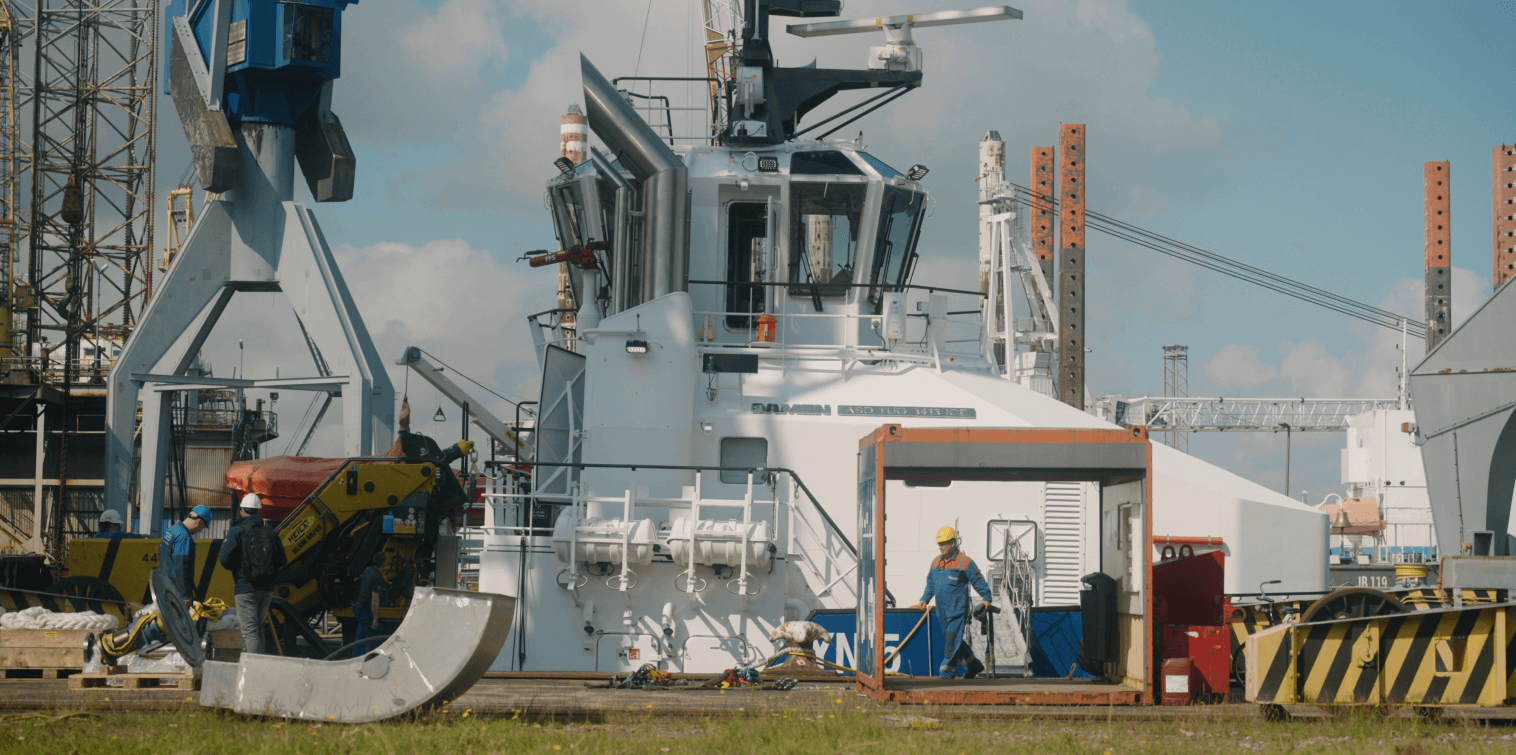Circular shipbuilding in the Rotterdam region

Whitepaper
In the Rotterdam region several initiatives are moving ahead to make this happen. Read the whitepaper for more info about what we do to foster circularity in the maritime industry in Rotterdam.
Whitepaper - Circularity in Shipbuilding
Offshore Energy in Rotterdam: innovations and collaborations


Rotterdam based Wattlab Break Guinness World Record with MS Helios


We are building the Smart Hydrogen Hub, for and with M4H


Breakbulk and Rotterdam: developments and opportunities


Rotterdam ranked maritime leader of Europe by DNV and Menon Economics



